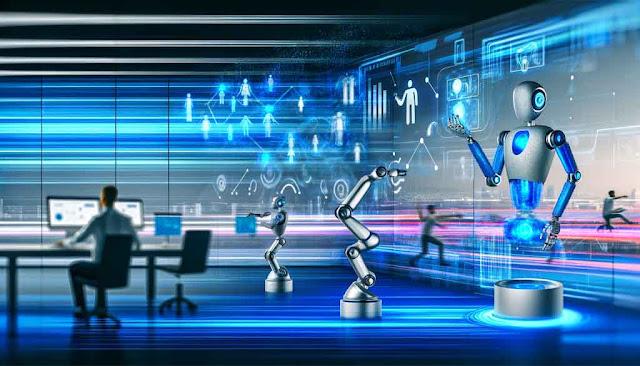As technology continues to advance, the future of work is becoming increasingly uncertain. While some jobs may be replaced by Automation and artificial intelligence (AI), others will remain untouched. In this blog post, we'll explore which jobs are most likely to be affected by automation and AI in the next 10-20 years, and how you can position yourself for success in the areas that are least likely to be impacted.
The Future of Work: How Automation and AI Will Impact Jobs
1. High Automation Occupations:
The study identified several high automation occupations that are at risk of being replaced by automation and AI. These include authors, writers, translators, bank and post office clerks, bookkeepers, payroll managers, and wages clerks. Brokers, call center operators, customer service representatives, financial officers, Human Resources Administrative staff, liberians, market research interviewers, and other administrative staff are also at risk.
2. AI Occupational Exposure (AOE):
The study also analyzed the AOE of various jobs, which measures the exposure of workers to current AI technology. The top five jobs with the highest AOE include accounting and finance administrators, marketing and sales staff, ICT professionals, and human resources administrative staff. On the other hand, the bottom five jobs with
3. Artificial General Intelligence AGI:
AGI refers to an advanced AI system capable of performing any intellectual task that a human can. Once robotics catch up to AI, the last 20% of jobs—primarily those involving physical labor—will likely be automated. The emergence of AGI will significantly change the way we live and work, blurring the line between humans and machines.
Bill Gates has predicted that within the next 5 years, any job on a computer will be automatable by AI agents. This means that once AI problem-solving capabilities are improved, any job that can be performed on a computer will be at risk of being replaced by an AI agent.
Impact on Jobs
Jobs with high exposure to automation include accounting and finance, ICT marketing, sales, and some administrative roles. These jobs require significant mental bandwidth and are more likely to be automated due to the efficiency gains offered by technology. On the other hand, jobs in building and construction have a lower risk of being automated as human labor is more efficient in these areas.
Pros and Cons
While automation and AI have the potential to increase productivity and efficiency, they also pose significant risks to workers in certain industries. The pros of automation and AI include increased speed and accuracy, reduced costs, and improved quality. However, the cons include job loss and displacement, which can have significant social and economic impacts.
Conclusion
In conclusion, while some jobs are at high risk of being replaced by automation and AI within the next 10-20 years, others are likely to remain untouched. Building and construction workers, agricultural workers, and fishers are among those least likely to be impacted by automation and AI. To position yourself for success in these areas, consider acquiring skills that are less likely to be automated, such as emotional intelligence, creativity, and problem-solving abilities.

